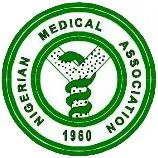Medical doctors in Edo State have raised the alarm over the ongoing outbreaks of diphtheria and dengue fever, describing them as a serious public health threat. They are calling for urgent preventive measures to safeguard individuals, families, and communities across the state.
The warning was issued through the Nigerian Medical Association (NMA), Edo State chapter, in a statement jointly signed by Dr. Eseigbe Efeomo, Chairman of the Environmental Health Committee, and Dr. Eustace Oseghale, the State Chairman.
Titled “Public Health Advisory on Diphtheria and Dengue Fever Outbreaks in Edo State,” the statement urged the Edo State Government and all relevant stakeholders to act swiftly to curb the spread of these diseases by:
Strengthening routine immunization to prevent diphtheria infections.
Enhancing vector control measures to reduce mosquito populations.
The NMA further recommended that the government:
Improve surveillance and case management for early detection and treatment.
Provide adequate resources for healthcare workers and facilities.
Engage communities through risk communication and health education.
The doctors identified early symptoms of diphtheria to include sore throat, difficulty swallowing, mild fever, and general weakness. Advanced symptoms may present as a thick gray coating in the throat or nose, swollen glands in the neck, difficulty breathing, hoarseness or loss of voice, nasal discharge (sometimes bloody), rapid heart rate, and dehydration in severe cases.
For dengue fever, the NMA listed mild to moderate symptoms such as high fever (up to 40°C), severe headache, pain behind the eyes, muscle, joint, and bone pain (often called “breakbone fever”), nausea and vomiting, skin rash appearing a few days after fever onset, and swollen glands.
In cases of severe dengue (also known as dengue hemorrhagic fever or dengue shock syndrome), symptoms may include severe stomach pain, persistent vomiting (at least three times in 24 hours), bleeding from the gums or nose, blood in urine, stools, or vomitus, bruising or bleeding under the skin, difficulty or rapid breathing, and extreme fatigue or restlessness.
To protect themselves, citizens are advised to:
Maintain good hygiene and avoid close contact with infected or ill individuals.
Seek early medical attention if symptoms appear.
Eliminate mosquito breeding sites by removing stagnant water around homes.
Use mosquito nets and insect repellents to prevent bites.
Wear protective clothing to reduce exposure.
Promptly report suspected cases to the nearest health authorities.The doctors urged all residents to remain vigilant, take preventive measures seriously, and support coordinated efforts to stop the spread of the diseases.
